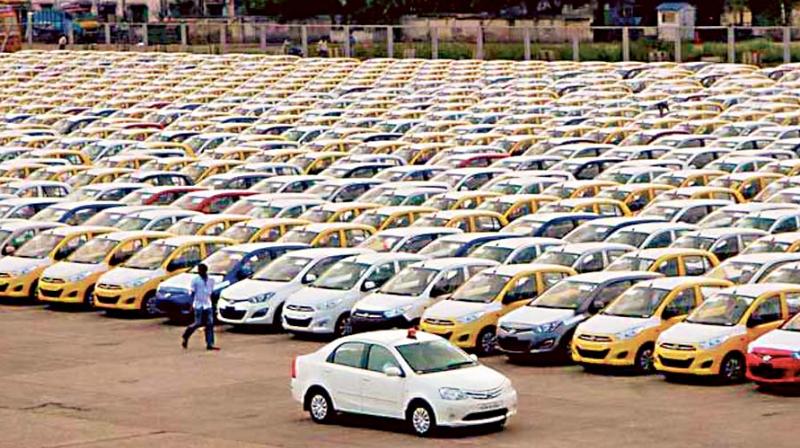Pollution check: Will the vehicle ban work?
Responding to the latest proposal, urban planners say there are many other options to ease traffic congestion on the roads .

As the pollution and traffic congestion grow in Bengaluru, the government doesn't seem to be able to come up with the right solution. Its latest brainwave, as DC reported, is to ban registration of new vehicles in the city for two years. But will this really help matters? Are the authorities merely considering cosmetic changes when the city is crying out for a more permanent solution like taxes and going green?
Nischith N reports
As Bengaluru’s traffic troubles and air pollution grow, the solutions too are getting more varied and complicated. Only recently the government came out with a proposal to ban 15- year- old vehicles on the city’s roads to check foul emissions polluting its environment and to de-congest them.
While this has not gone down well with taxi and lorry drivers , who depend on their vehicles for a living, the authorities have now come up with another solution : Ban registration of all new vehicles for the next two years. Deputy Chief Minister G Parameshwara, who is also Bengaluru Development Minister, seems to be considering the idea, but this too has received mixed response from traffic experts and the public.
Responding to the latest proposal, urban planners say there are many other options to ease traffic congestion on the roads . Says Mr Ashish Verma, associate professor at the Indian Institute of Science (IISc), "Although calling for a ban on registration of new vehicles is a good idea, the plan will not work unless combined with other solutions. It’s true that the number of private vehicles on Bengaluru’s roads is increasing by at least five per cent every year and they are a major source of traffic congestion, but banning them for two years cannot work in isolation. If the government continues to back elevated corridors, it is only making room for use of more vehicles."
In his view, the government needs to first improve the city’s public transport system to help people leave their vehicles at home. “ Instead of marketing elevated corridors and pod taxis as wonder solutions, the authorities need to extend the Metro Rail network,” suggest experts.
Mr Shashi Kumar C, car showroom employee notes that a city like Bengaluru needs a Metro connectivity running over 100 to 150kms, but currently doesn’t enjoy such a facility.
As for banning the registration of new vehicles, he says this will impact the livelihoods of many, especially of those employed in car showrooms like him, as people will stop buying new cars.”The government needs to improve the Metro, bus and other public transport services if it wants to see fewer private vehicles on the city’s roads,” he implores.
Impose congestion tax: Experts
One solution suggested by transport experts is the imposition of a congestion tax on vehicles in city. Famously used in dense cities like London and Stockholm, which have an electronic toll system, they believe it could be the answer to the city’s increasing traffic troubles. According to the experts, London charges a congestion fee of 11.50 pounds on weekdays in a 20-square km area around the city centre for vehicles entering between 7am and 6 pm and uses automatic number plate-recognition cameras at 348 entry sites. Vehicle owners entering the zones either pay online or via their mobile phones. With Bengaluru handling even more traffic than London, it is time it introduced the tax, they reason. “Introducing a congestion tax will help faster movement of traffic because people will not want to pay it. It should be introduced in the Central Business District because Church Street and Brigade Road are very narrow and the parking of vehicles on them makes them even more congested,” says Mr Sanjeev Dyamannavar, transport expert and founding member of Praja RAAG. Explaining that congestion tax is a fee levied on vehicles for using roads during peak hour, he says before it is imposed, experts will have to be invited to study the city's traffic flow. “The tax has been accepted by the people in many countries and in some Indian cities too. This option should be explored and introduced in the CBD and the city’s commercial hubs, followed by the suburbs,” Mr Dyamannavar suggests. But for the system to work the authorities will have to arrive at a figure for the tax and categorise the vehicles. A Radio-Frequency Identification (RFID) for vehicles will also have to be introduced in the city, say experts, arguing that besides curbing traffic, the tax will be a good revenue earner for the government.

